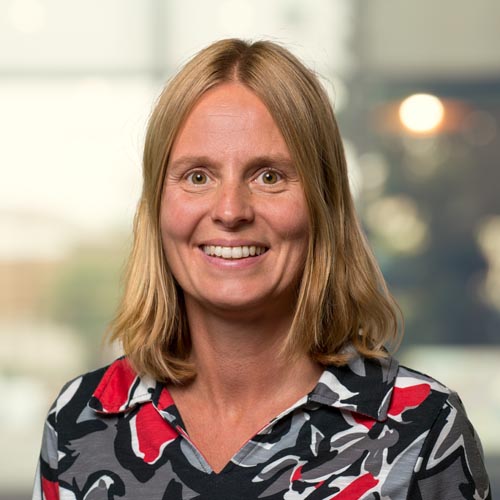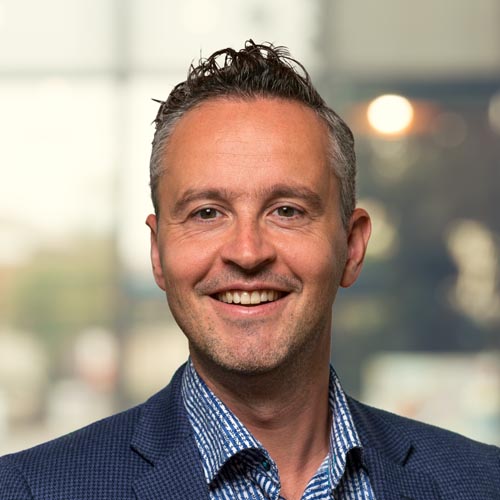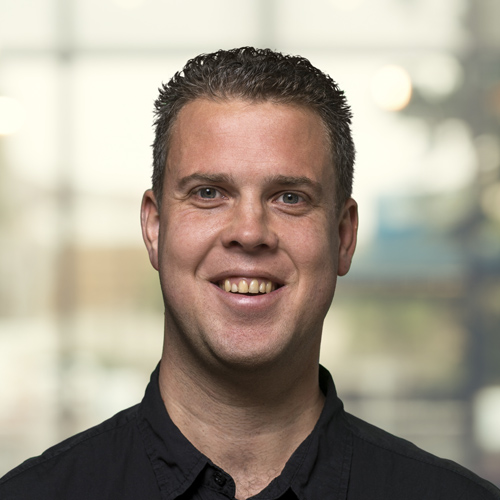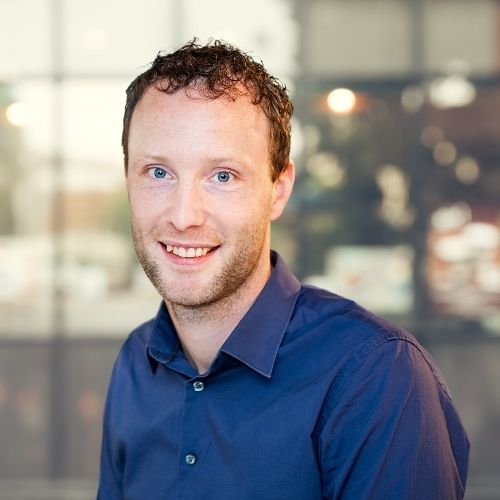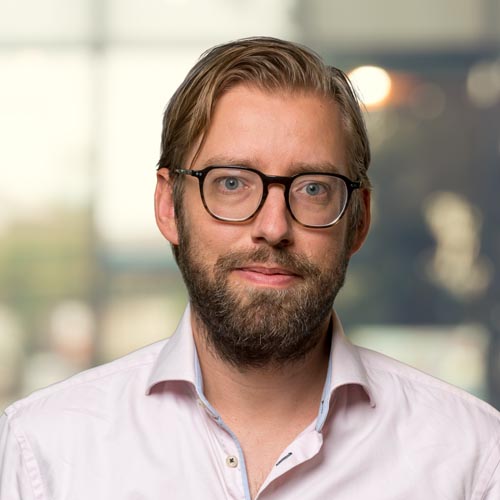
Sustainable labour force participation in inclusive organisations
The Netherlands has around 1.5 million people who want to work but are unable to find a job. We’re therefore focusing on improving the sustainable employability and labour force participation of people who are at a distance from the labour market. We’re also developing interventions to promote diversity, equality, and inclusion in the labour market. Through innovative research, working together with municipalities, professionals, companies, and jobseekers, we’re contributing to an inclusive labour market.
Everyone takes part and is important
It’s important for everyone to participate in our society and having a job is a key factor, as it gives people prospects for the future. However, not all people have the same opportunities in the labour market. It’s essential for both individuals and society to address this. For the individual, because having suitable work contributes to a healthy and happy life. In a societal sense, it’s not only morally right that everyone should have a chance of work and a secure livelihood, but also important because of the underutilisation of labour potential and talent.
Moreover, the current tightness of the labour market, which is frustrating implementation of important transitions – climate, migration, and the ageing society – makes tackling this issue very urgent. At the same time, these transitions also provide opportunities for large groups of people who, for various reasons, are not participating in the labour market or cannot sufficiently advance to suitable positions. And it offers employers opportunities to draw their staff from a wider labour market pool, which in turn will enable them to achieve economic growth and play a responsible and meaningful role in our society.
How do we achieve an inclusive labour market?
We develop interventions to promote diversity, equality, and inclusion in the labour market, targeting employees, jobseekers, employers, and municipal government professionals. We develop innovative concepts that give people with a vulnerable labour market position more opportunities to develop and participate in meaningful work according to their abilities.
We also support employers in gaining a better understanding of inclusive entrepreneurship, the opportunities this provides, and how they can improve their ability to include people in their organisations. We do so, among other things, by developing tools that promote fairer and more objective recruitment and selection.
Finally, we develop concepts, interventions, and tools to further professionalise implementation by municipalities, so that people can be better guided towards work opportunities and supported in their journey towards sustainable employment. With our integrated systems approach, we bring together jobseekers, employers, and municipal implementation in a sustainable way and create links between different worlds.
To achieve recruitment and advancement of people who are at a distance to the labour market, we’re working on:
- Including the voices of employees and jobseekers
- Modernising jobseeker reintegration services
- Inclusive technology
- Approaching employers
- Diversity & Inclusion
Including the voices of employees and jobseekers
Many solutions to the challenge of finding and staying in work are developed for employees and jobseekers rather than with employees and jobseekers. Their point of view is often not sufficiently heard or taken into account. We therefore develop, together with the target group, methods that ensure their voices are heard and they can have a say in their own training, return to work, or job retention. Equality and autonomy are key principles here.
For example, using an EscapeGame, we ask secondary vocational students (MBO-1 and MBO-2) about the obstacles, motivation, and resources in relation to completing their education. Jobseekers can help decide on the steps they take towards employment through the Shared Decision-making method, developed and applied in collaboration with the municipality of Arnhem.
Finally, we have developed a tool in which employees can indicate in a fun and easy way how they are doing and what they need in order to do their work in a healthy, safe, and fair manner. These projects are showing good initial results. Involving the voices of employees and jobseekers enables people to feel more autonomous; they feel more involved, which leads to higher motivation and control of the situation.
Modernisation of jobseeker reintegration services
Municipal government professionals support jobseekers on the way to taking their place in society and, if possible, to finding regular employment. Together with our partners, we’re working on projects to improve professional services. In Kopkrakers, we promote lifelong development by providing professionals, through an app and practical dilemmas, with scientific insights and experiential knowledge. We’re also collaborating with the Association of Dutch Municipalities and others on the digital instrument guide EVA, in which professionals, together with jobseekers, can find suitable interventions for support.
Furthermore, we’re looking at how data from available ICT systems can be used to improve services (e.g., the caseload) and what opportunities are offered by ChatGPT, or AI in general. We’re studying the monitoring of jobseekers’ journeys towards work by creating and testing a measurement tool. We share these lessons learned with municipalities, universities, universities of applied sciences, Divosa, and professional association SAM in the ‘Weighted Customisation’ Community of Practice.
Inclusive technology
Inclusive technology is technology that provides support to people with a vulnerable employment status in seeking and finding work, and staying in employment on a long-term basis. Our projects include research on how inclusive technology, such as a virtual job coach or digital interactive exercises, can support jobseekers in their search for work, but also how technology can support task execution by removing barriers. This may involve physical support, with an exoskeleton, for example, but also cognitive support (e.g., an Operator Support System and collaborative robots). In all our projects, we stand for a human-centred approach: technology should always be at the service of users, such as jobseekers or professionals.
To disseminate knowledge on this new topic more widely in the Netherlands, we at TNO, together with Cedris and SBCM, founded the Knowledge Alliance Inclusion & Technology (KIT) in 2017.
Approaching employers
We see that the percentage of employers that employ at least one person with a disability is low and has been around 20% for years. And this at a time when there are staff shortages in many sectors. The main reason given by employers is that there are no suitable positions in their company. Many employers have limited knowledge of the schemes available to employ people with disabilities.
It’s therefore important to provide more support to employers regarding the opportunities for inclusive entrepreneurship. To gain more insight into the inclusiveness of entrepreneurs, what drives them, and what barriers they see and experience, we’ve developed the Inclusive Entrepreneurship Questionnaire (pdf) (Vragenlijst Inclusief Ondernemen, VIO). We’ve also developed the Performance Ladder for More Social Entrepreneurship (pdf) (Prestatieladder Socialer Ondernemen, PSO) with PSO Nederland. This tool enables organisations to show where they stand with regard to inclusive entrepreneurship and to continue to develop in that area. That status is recognised with a validated certificate.
In addition, there are opportunities to help employers look at their own work processes differently, adapt them if necessary (e.g., Job Carving), and enable the deployment of people with disabilities with the help of Inclusive Technology.
Diversity & Inclusion
Diversity is increasing among the Dutch workforce, due to globalisation, migration flows, emancipation, and ageing, among other things. On paper, this diversity can lead to greater creativity, productivity, and innovation, but in practice this proves to be more challenging. For instance, jobseekers from non-western migration backgrounds are less likely to be invited for job interviews.
Moreover, the outflow of employees with a migration background is higher and they lose their jobs 1.5 times more often than those without a migration background. In addition, they are 12% less likely to advance to a higher, better-paid position. Also, women still earn less than men per hour worked (the gender pay gap stands at 7.4% in 2023) and they are less likely to be promoted. Women are more likely to work part-time and take on more unpaid care and household duties than men.
Although the labour market is ageing and this will continue in the coming decades, older employees face age discrimination, both in the workplace itself and when looking for a new job later in life. We also see that employers are struggling to retain younger employees long-term; there is a high dropout rate among young people and they change jobs frequently. In short, there are challenges and opportunities in terms of improving diversity and inclusion in the workplace.
How to achieve an inclusive labor market?
We work on various projects together with many partners: public organisations, municipalities, representative industry organisations, employers (of varying degrees of inclusivity), knowledge institutions, educators, civil society parties, and investors:
Would you like to work with us?
We already work with a diverse range of stakeholders in both the public and private domain. Establishing and participating in ecosystems is important for us to develop our knowledge and ensure that it has an impact. We’re therefore keen to get in touch with parties that want to contribute to this work, from employers to public implementing organisations and municipalities, or labour market regions.
Want to know more about what we do in the area of inclusive work or contribute to its development with your organisation? If so, don’t hesitate to contact us.
Get inspired
TNO Announces the launch of ObjectivEye
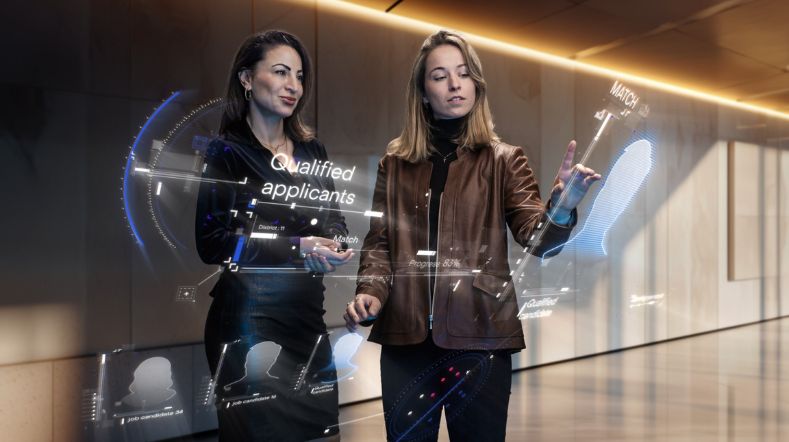

Prospective Life Cycle Assessments for future-proof product design


Knowledge advantage in SSbD offers opportunities for Dutch chemical companies


The future of chemicals is Safe and Sustainable by Design


SSbD presents significant opportunities for the Dutch chemical sector to maintain its leadership position




